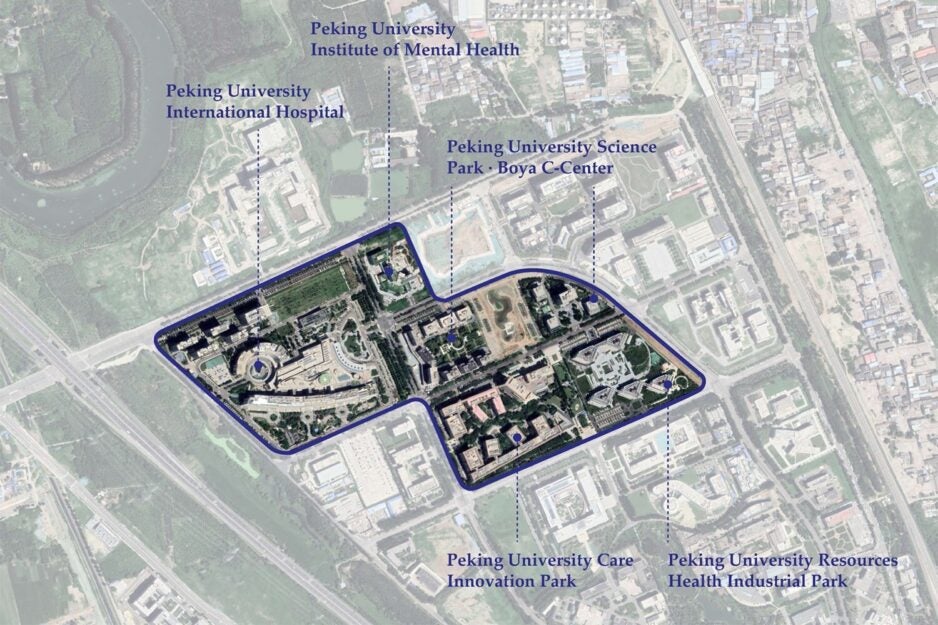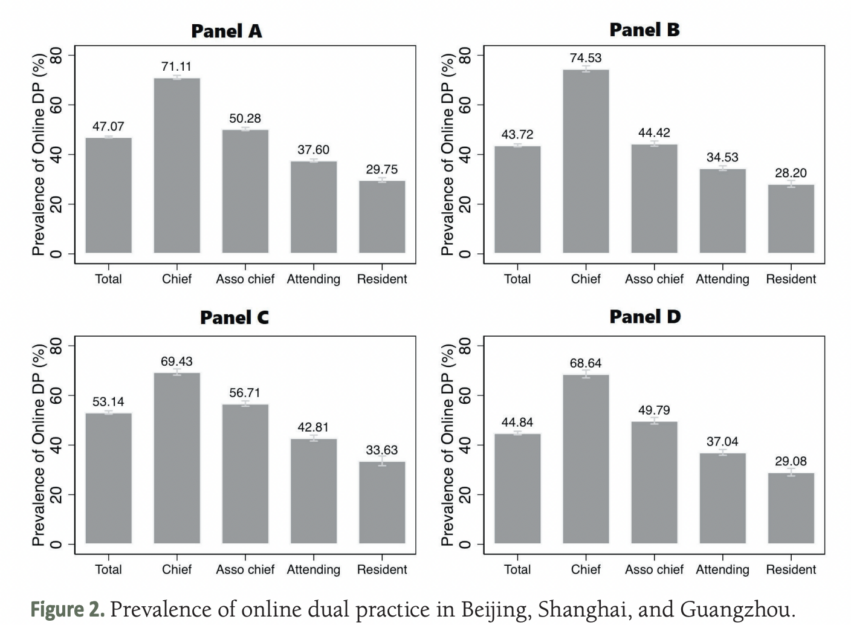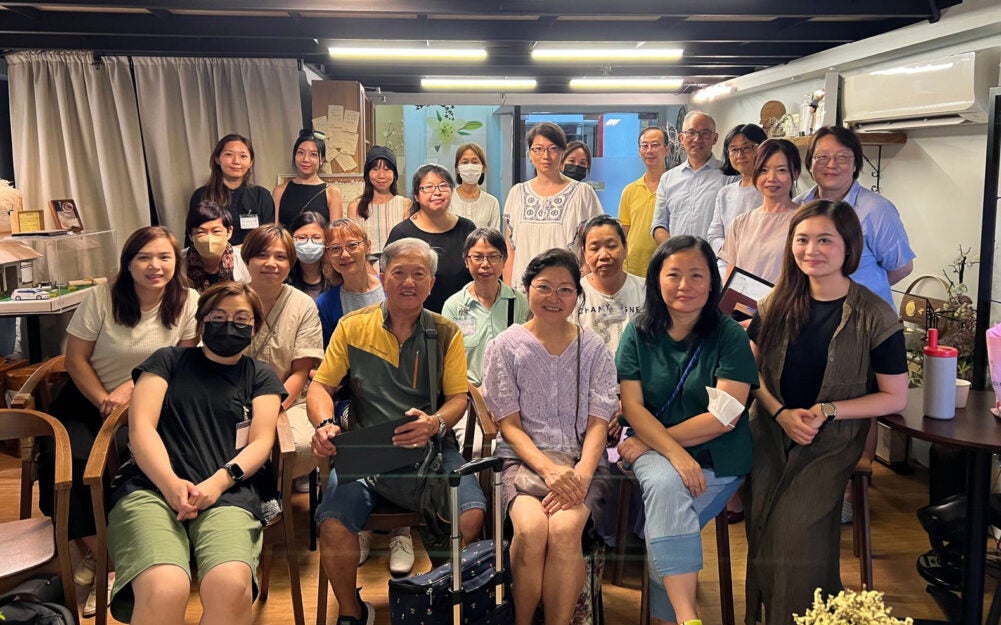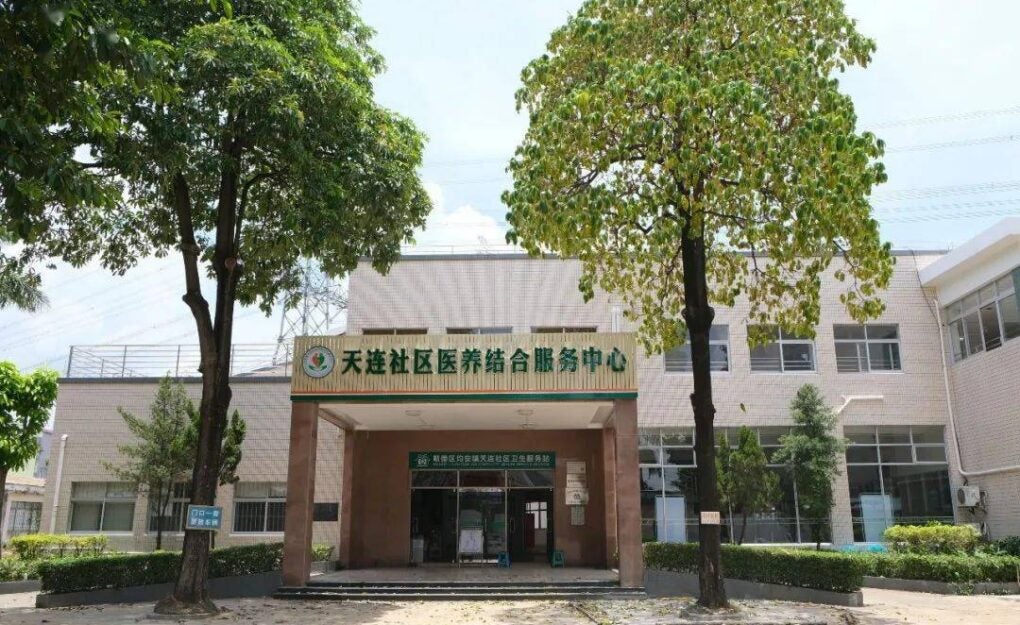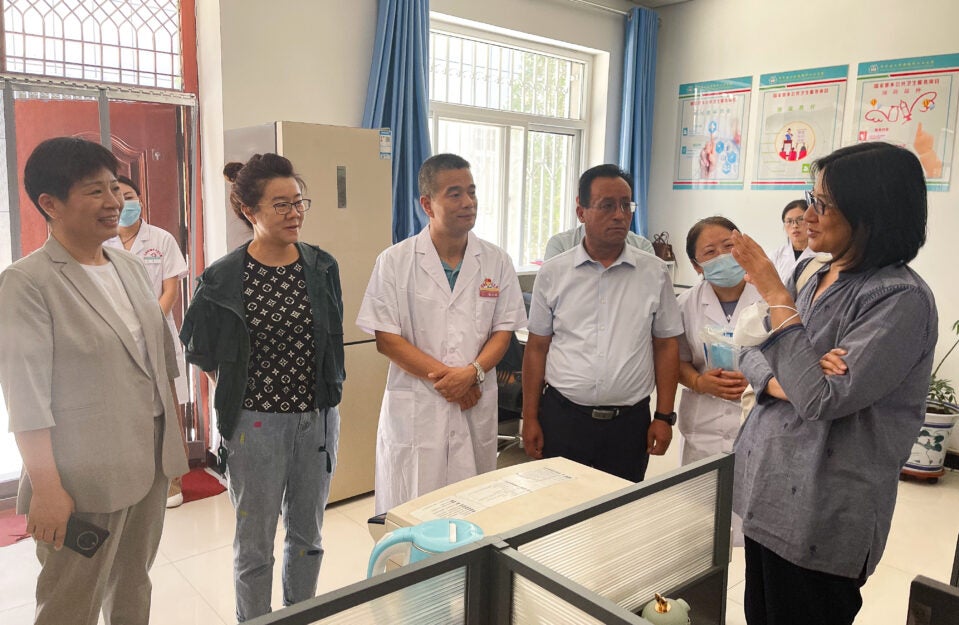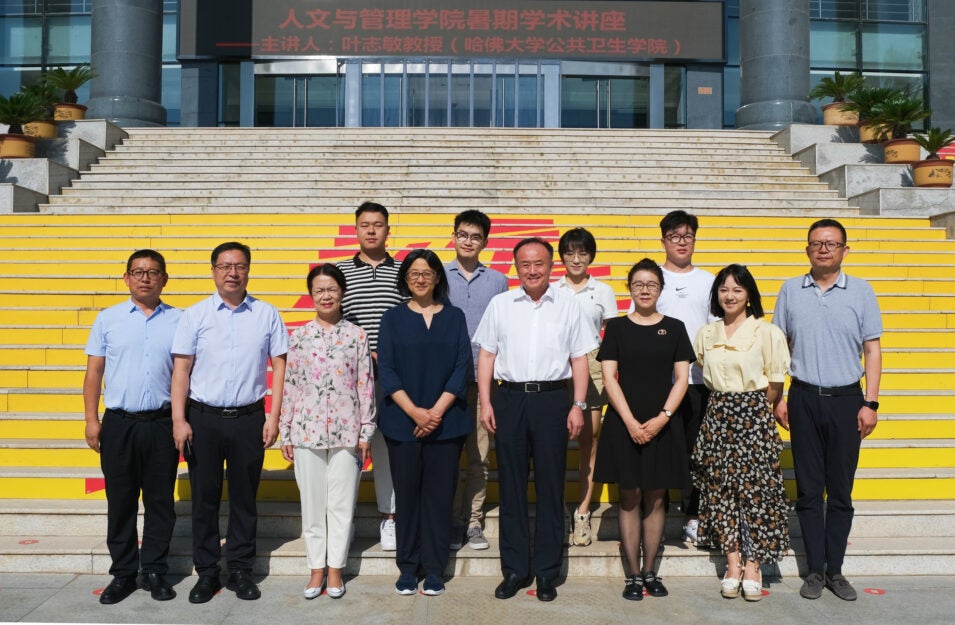On October 23-24, 2023, Professor Winnie Yip joined the fourth meeting of the Tsinghua-Lancet Commission on Health and Poverty Alleviation in China in Beijing. The Commission’s goal is to conduct a comprehensive assessment of China’s progress, challenges, and achievements in its health-related poverty alleviation efforts. The theme of the session was “健康扶贫的可持续发展战略 [Sustainable Development Strategy for Healthy Poverty Alleviation].” Representatives from a wide variety of governmental agencies, health research institutions,…
New Publication: The ivory tower in China’s speculative urbanism: instrumentalizing the university-healthcare nexus
Abstract This research investigates how the public university engages in China’s speculative urbanism by establishing and operationalizing the university-healthcare nexus through both real estate and healthcare businesses. Drawing on open company data and expert interviews, the organizational structure of public and private actors in the university-healthcare nexus of the Peking University Healthcare City was unfold as a case study. Findings reveal that the university-healthcare nexus was established by Peking University…
The Tsinghua–Lancet Commission on health and poverty alleviation in China
The Tsinghua–Lancet Commission on health and poverty alleviation in China published a comment in The Lancet on September 25, 2023. The Commission was formed as a collaboration between the Tsinghua Vanke School of Public Health and The Lancet journal to comprehensively evaluate health-related poverty alleviation efforts in China. Dr. Winnie Yip, Faculty Director of the Harvard China Health Partnership, serves as one of the 30 independent commissioners. They are expected to…
Continue reading “The Tsinghua–Lancet Commission on health and poverty alleviation in China”
New Publication: Factors influencing engagement in online dual practice by public hospital doctors in three large cities: A mixed-methods study in China
Summary Background In the digital age, a rising number of public sector doctors are providing private telemedicine and telehealth services on online health care platforms. This novel practice pattern – termed online dual practice – may profoundly impact health system performance in both developed and developing countries. This study aims to understand the factors influencing doctors’ engagement in online dual practice. Methods Using a mixed-methods design, this study concurrently collects…
China Launches Anti-Corruption Campaign Upon Healthcare Sector
An article by The Wall Street Journal, “中国降低医疗成本的独特行动:大规模医药反腐 [China’s Unique Action to Reduce Medical Costs: Large-Scale Pharmaceutical Anti-Corruption]” reported on China’s sweeping anti-corruption campaign launched across hospitals and medical institutions since July 2023. Cracking down on acts of medical corruption—for example, doctors and hospital managers taking monetary bribes from patients and drug manufacturers—is a potential way to aid reduction of medical costs. Dr. Winnie Yip, Professor of Global Health Policy…
Continue reading “China Launches Anti-Corruption Campaign Upon Healthcare Sector”
Professor Winnie Yip Visits Community-Based Elder Care Programs in Hong Kong
Volunteers at “Forget Thee Not” Photo credit: D.H. Chen Foundation The Harvard China Health Partnership (HCHP) has been actively conducting research and hosting seminars on the topic of meaningful aging, and have been working with local communities to design, launch and scale pilot programs in elder care. This July, Professor Winnie Yip visited two community-based eldercare programs in Hong Kong sponsored by the D.H. Chen Foundation. Forget Thee…
Continue reading “Professor Winnie Yip Visits Community-Based Elder Care Programs in Hong Kong”
HCHP Visits Community Health Service Station in Jun’an
Shunde Junan Tianlian Community Health Service Station Photo credit: 搜狐, 阳珊的生活大圈子 On July 21, 2023, Professor Winnie Yip, Professor Hongqiao Fu, and health experts from Guangdong visited the Shunde Junan Tianlian Community Health Service Station (顺德区均安镇天连社区卫生服务站) in Jun’an (均安), Guangdong Province. The Station serves as a pilot model for an integrated delivery system that extends to eldercare. Building upon the existing community health center, it has added new senior-friendly…
Continue reading “HCHP Visits Community Health Service Station in Jun’an”
Professor Winnie Yip and Professor Hongqiao Fu Visit The Health Commission of Ningxia Hui Autonomous Region
Professor Winnie Yip and NMU Dean Hui Qiao discuss primary care with local doctors The Harvard China Health Partnership (HCHP) has a longstanding relationship with the Ningxia Hui Autonomous Region, working together to implement local healthcare programs since 2008. On July 19, 2023, Professor Winnie Yip, Faculty Director of HCHP, and Professor Hongqiao Fu from Peking University’s School of Public Health revisited the Health Commission of Ningxia Hui Autonomous…
Professor Winnie Yip Visits the National Healthcare Security Administration
The Harvard China Health Partnership (HCHP) and China’s National Healthcare Security Administration (NHSA) have collaborated since 2018 to organize annual executive education courses for national and provincial officials. Every year, international and domestic experts introduce their opinions and experiences on topics relevant to NHSA’s core responsibilities, including health financing, strategic purchasing, provider payment, service pricing, and more. This year, the fifth annual executive training course is set to take place…
Continue reading “Professor Winnie Yip Visits the National Healthcare Security Administration”
Professor Winnie Yip Visits Ningxia Medical University
Professor Winnie Yip, Senior Administrators, and Faculty of Ningxia Medical University Professor Winnie Yip visited Ningxia Medical University on July 18 for a fruitful exchange and discussion. During her visit, she delivered a lecture on the concept, history, and international experience of people-centered integrated delivery systems. Following the lecture, she engaged in insightful discussions with the faculty and administrators of Ningxia Medical University, exploring the current challenges in implementing…
Continue reading “Professor Winnie Yip Visits Ningxia Medical University”


